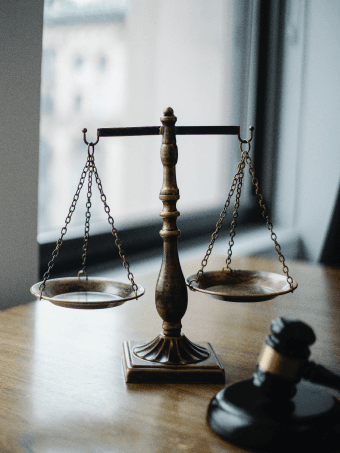What are Trademarks?
Trademarks are signs, images, and symbols capable of distinguishing the goods or services of one company from those of other companies. They are the unique elements that make a brand stand out in the marketplace. Think of Apple's iconic logo, McDonald's memorable chant "I'm Lovin' It," or Verizon's distinctive brand name—each of these is a trademark that serves to identify and differentiate.
A trademark can take many forms: a word, phrase, logo, symbol, or even a combination of these. It is closely connected to a company's branding and is often the visual and verbal identity the public comes to associate with a particular quality or experience. The main purpose of trademark registration is to protect these distinctive brand assets from being misused or copied. Registering a trademark helps ensure that the goodwill and recognition a business has built remain closely tied to that business alone.
Without trademark protection, competitors could potentially imitate your brand's most valuable identifiers, confusing consumers and diluting your reputation. A registered trademark gives you legal recourse to stop others from using similar signs that could mislead customers about the origin of the goods or services.
Slogans
Slogans are short, memorable phrases used by brands to convey their identity, values, or key benefits in a catchy and impactful way. Legally, they can function as trademarks if they are distinctive enough to identify the source of a product or service. While generic or overly descriptive slogans may not qualify for protection, unique and creative slogans—like Nike’s “Just Do It” or McDonald’s “I’m Lovin’ It”—can be registered and enforced as trademarks. A strong slogan not only enhances marketing efforts but also helps build brand recognition and loyalty over time.
Slogans are part and parcel of the trademarking world, but there are a couple of noteworthy differences between trademarkable slogans and slogans that are very likely to be dismissed. Here are a couple to take in mind when writing your own slogans:
1.
Slogans, like all trademarks, are supposed to identify the source of the goods, i.e. they're supposed to be recognized as part of your brand. However, many slogans simply describe a product’s quality, function, or appeal (e.g. “Fresh and Tasty” for food). IP offices usually refuse registration for such slogans because they don't identify a unique source—they just describe the product.
2.
If a slogan sounds like a common advertising phrase—e.g. “The Best You Can Get”—it can be seen as promotional rather than brand-identifying. In the eyes of trademark examiners, this can be problematic because trademarks need to signal origin, not sell the product.
3.
Generic or popular phrases (especially those used across industries) are less likely to qualify. For example, “Think Green” could be used by dozens of companies and industries, making it hard to claim exclusive rights. This is even true for gigantic global companies, such as Nike. Their "Just Do It" slogan was notoriously difficult to register. They had to conduct public polls to prove that the public associated the slogan with Nike.
4.
If a slogan isn’t inherently distinctive, the brand must prove it has acquired “secondary meaning”—that consumers now associate the slogan with a specific company. This usually requires significant time, advertising, and recognition, which early-stage businesses may not yet have.
5.
Short slogans made up of everyday words (e.g. “Simply Better”) are inherently harder to protect unless you can show strong brand association over time. The more distinctive, non-promotional your slogan is, the higher the chances of successful registration.
Takeaways
Trademarks protect your brand identity and help you stand out in a crowded market.
Trademarks can include names, logos, slogans, and other brand identifiers.
Slogans are registrable as trademarks if they are distinctive and not merely descriptive or generic.
Avoid promotional or commonly-used phrases when crafting your brand slogan.
Unique, creative slogans have a much better chance of receiving trademark protection.
Even large companies must prove secondary meaning for slogans that aren’t inherently distinctive.
Registering your trademarks helps prevent others from profiting off your brand reputation and gives you legal grounds to enforce your rights.
If you're unsure whether your slogan or brand name is registrable, it’s worth consulting with trademark professionals or conducting a legal check before proceeding with registration.
FAQs - How to Create a More Trademarkable Slogan?
1. Can I trademark a slogan for my business?
Yes, you can trademark a slogan—if it meets certain criteria. Your slogan must be distinctive enough to identify the source of your goods or services, not just describe them. Slogans like "Just Do It" or "I’m Lovin’ It" are great examples of distinctive, trademarked phrases. However, overly generic or promotional slogans like “Best in Town” or “Fresh and Tasty” are usually rejected because they don’t signal a specific brand.
2. Why do some slogans get rejected by trademark offices?
Trademark offices typically reject slogans that:
Merely describe product qualities (e.g. “Soft and Strong” for tissues)
Sound like generic advertising (e.g. “The Best You Can Buy”)
Are widely used or lack uniqueness (e.g. “Think Green”)
Haven’t acquired secondary meaning (public recognition tied to a specific brand)
Short, simple phrases made up of common words are especially difficult to protect unless you can show that consumers directly associate the slogan with your business.
3. How can I improve my chances of registering a slogan as a trademark?
To boost your chances:
Choose creative, unique phrasing that isn’t used generically in your industry
Avoid slogans that merely praise the product or sound like marketing hype
If your slogan is borderline generic, invest in marketing to build public recognition over time
Document this recognition with evidence—such as advertising spend, public surveys, or social media engagement
Before applying, consider running a free legal check or consulting a trademark expert to assess your slogan’s registrability.


